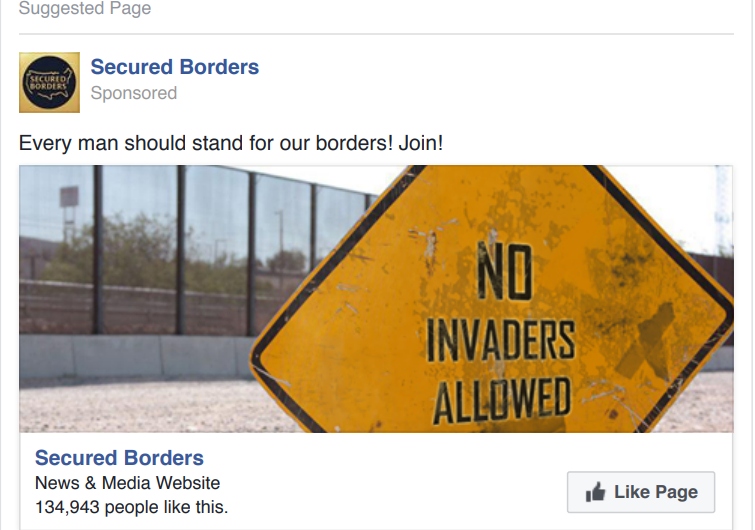
Sample ad via U.S. House of Representatives Permanent Select Committee on Intelligence
Digital Propaganda Working Group Outcomes
The U.S. and German participants agreed on common principles, such as securing the free democratic order on both sides of the Atlantic, as well as stabilizing and shaping a common sustainable future. This democratic order is at risk following the increasing importance of the digital-marketing industry on the one hand, and the increased use of social media for hybrid warfare on the other. Hate speech, Fake News, and specific disinformation campaigns target the heart of democracy when they interfere in the free, equal, and secret elections for the parliaments of both nations. The working group subsumed all of these threats under the term of “digital propaganda” and pointed out that the focus of the current public and political debate should include many more activities, such as data theft and data security. The response to digital propaganda—retaliation and resilience in a war with words—has to have the same importance and significance in the political agenda as it does in the public discourse.
The German and the U.S. security authorities, as well as the participants of the working group, are all aware of the fact that there is not just one responsible protagonist in the conflicts related to digital propaganda, but there can only be one common reaction. One-sided blaming on individual social media platforms and the systematic fake news or so-called “Dark-Ads,” created with novel digital marketing tools, are wrong and do not lead to finding sustainable solutions. Individual state actors, radical political groups, and other non-state actors that are trying to destabilize democratic systems by using digital propaganda cannot be always be accurately identified. According to the working group, in times of hybrid warfare online, traditional and stereotyped conceptions of an enemy such as Cold War Russia or Cultural Revolution China are no longer convincing. The concepts of the enemy in the war of words has to be reevaluated.
Because of the diverse history of law as well as diverse legal practice, there have to be different solutions for the same problems for both nations. Thus, the working group defined distinct fields of action for both countries to provide solutions for the causes and effects of digital propaganda in the future, to include the media, digital economy, politics and the state, civil society, and individual media skills of the general population.
In the field of “Politics and the State,” the working group discussed, for example, the introduction of a “Bot-Labeling-System,” controlled by the state, which would warn the user of possible automation intended to influence readers’ perceptions.
In the field of “civil society” there are various possibilities for both countries. One could be the development of institutionalized “Fact Checking Gateways” as well as the development of state-initiated party-neutral institutions of political education, such as the German Federal Agency for Political Education (Bundeszentrale für politische Bildung).
The working group has created a package of ideas and measures for each and every field of action, which will be finalized in a joint publication by AGI and the HSS that will include contributions by the working group’s participants.
For five months, 10 experts from Germany and 10 from the United States met in Munich, Berlin, and Washington to discuss the most pressing cybersecurity issues for transatlantic cooperation. Participants from the German Federal Foreign Office, the German Defense and Interior ministries, the U.S. Departments of State and Homeland Security, the United States European Command Joint Cyberspace Center, the Bundestag, academics, and tech companies discussed common threats to both countries in two working groups. The cyber defense working group made concrete progress in proposals for improved information sharing on cybersecurity threats between the two countries, while the digital propaganda working group made proposals for the governments of both countries to use everything from a “Bot-Labeling-System” to “Fact-checking Gateways” to deal with disinformation campaigns. These are the final outcomes of each working group, which will be expanded upon in greater length in our upcoming publication.









